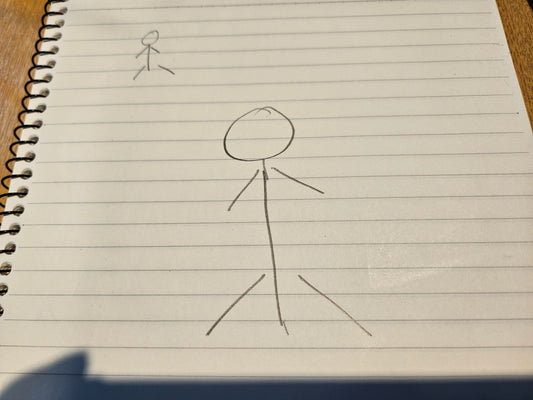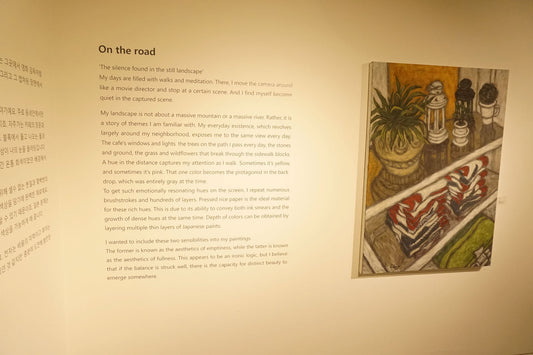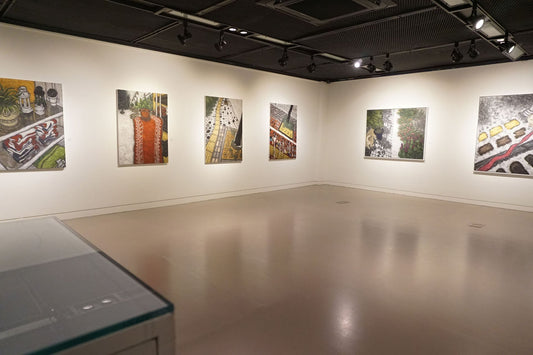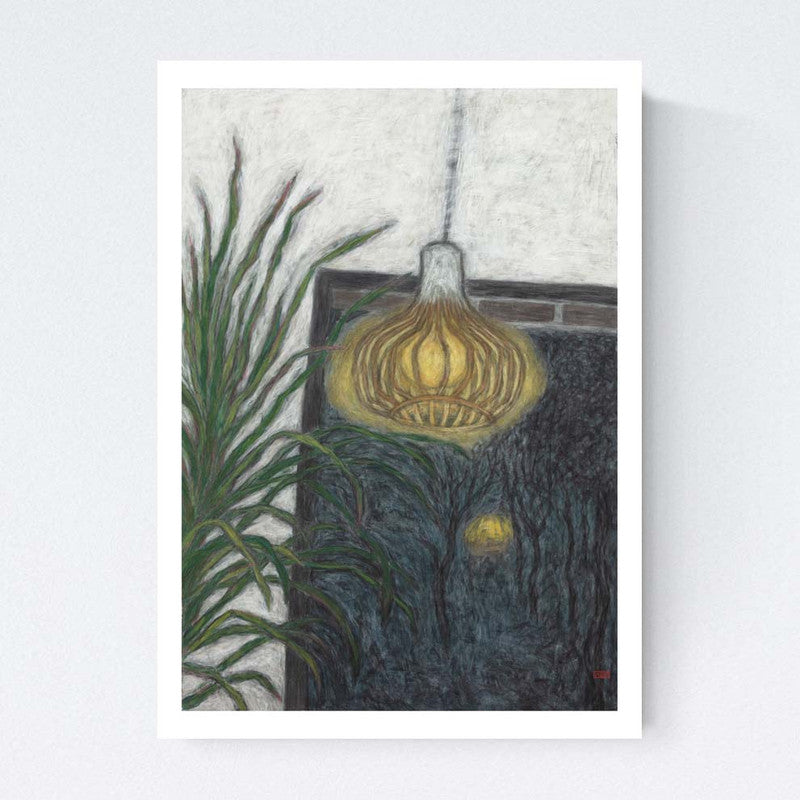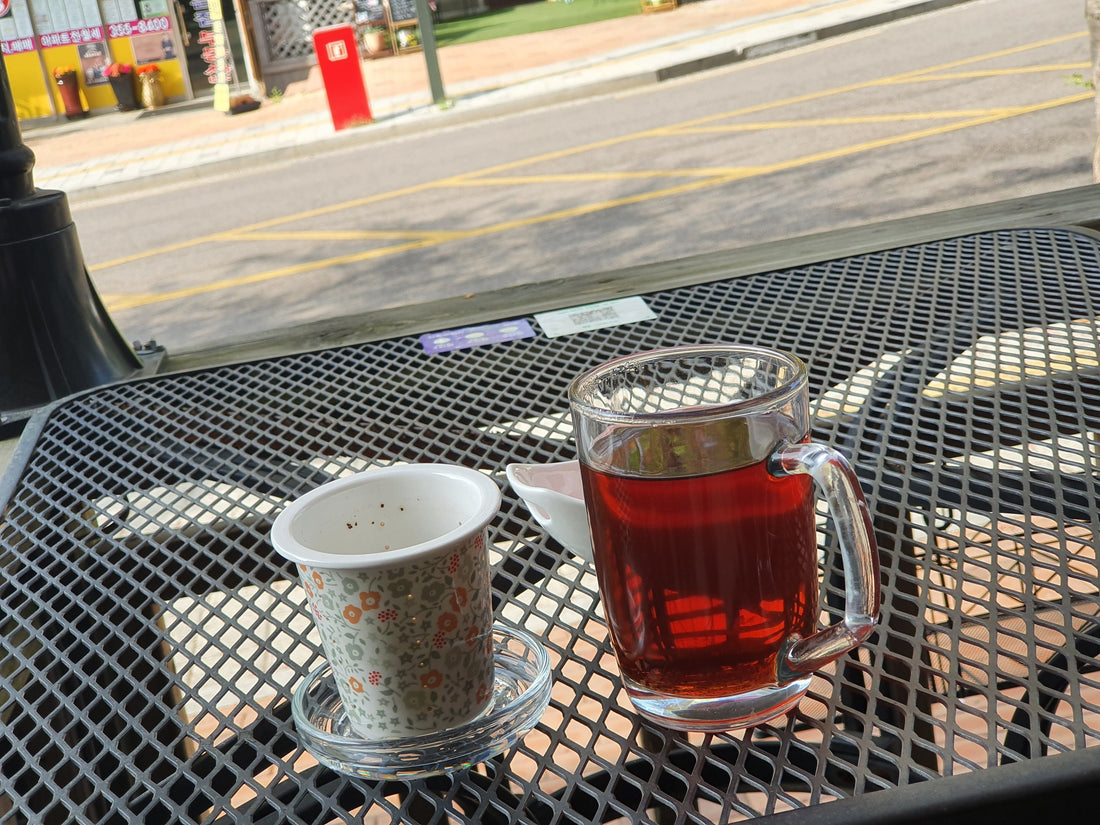
Art and Money:Can Passion Survive Without Income?
Share
Can an Artist Want Both Passion and Profit?
Money Matters to you? -When a Friend Judged Me
You lost passion because your painting does not make money for you. Money matters to you?
Greetings, everyone. Today, I would like to talk about art and money. There is an old saying that when doctors gather, they talk about art, while artists talk about money. This implies things that are lacking from each profession-as people crave what they consider they lack.
But not all artists are obsessed with money, as not all doctors are interested in art. Some artists might get angry, saying:
‘I’m doing art with a pure heart
‘How could you mix art with money?’
In fact, one of my friends got mad at me like this.
It happened when I was doing my master’s in New York. We were on a subway and were having a conversation about our future careers after graduation. When I said that I wanted to succeed as an artist, my friend got furious and scolded me by saying,
“What? Do you even want to be successful? You want to make a lot of money by doing art?”
At that moment, I was so embarrassed and felt ashamed that I was too worldly. Was talking about money really something an artist should be ashamed of?
For my friend, art was to walk the path of a monk. Regardless of the temptations of the world, I will walk my own path—for self-realization, in search of something noble. Perhaps she meant, ‘We should be grateful just to be able to do art we love; we shouldn’t also want money above that’.
I agree that doing art, being an artist, being a musician are all journeys to bring something out from deep inside one’s mind. And this attitude is also the mindset of a true artist.
Yet, how many artists can be completely free from money like she is? Especially if you are an emerging artist.
The Illusion of Being Above Money
To first explain her background, she had never earned money on her own until she was 40. She was born into a wealthy family and never had to worry about money. After graduating from a private university then graduate school in the U.S., she moved back and forth between schools with the help of her parents instead of finding a job. By the time she was 40, she was still a university student.
Perhaps, her way of living might have been modeled after Vincent van Gogh. With the help of his younger brother Theo, Gogh lived a life of an artist, so he could leave behind numerous works. Maybe, did she believe that everything would be forgiven if she could unfold her artistic world with the help of others like Gogh did?
Historically, Art Has Always Needed Money
Some might ask why you struggle to be an artist when you don’t have money. Yes, that is right. Originally, art was an activity of luxury one could perform when there was no money issue. Even historically, artists received the patronage of the royal palace while working as court painters, and they could produce work with the support of the men of a great wealth of Venice.
When Silence Feels Like Rejection
Then, if you are from a wealthy family, if you can engage in artistic activities regardless of whether your works would make money, can you be free from money problems? You have held solo exhibitions for 10 years, but no one has bought any. Many of the works you’ve drawn are piled up in the warehouse. There was an exhibition this year too, but not a single work was sold. Can you assure that on the last day of the exhibition as the artworks are withdrawn, you would be truly OK?
Holding an exhibition is the same as talking to the world. If no one answers what I say, it’s the same as talking to oneself against a wall. If what I get is only empty echoes, I will be disappointed. I believe no one would like to enjoy disappointment more than anticipation.
No one says anything if you’re quitting art activities as a hobby. Instead, what I am talking about relates to sustainability.
Why I Became a Teacher—And What It Taught Me
Here, for a moment, I must tell you an old story of mine. After graduating from university, I worked as an elementary school teacher. I graduated from art school, but I was not confident enough to make a living as a full-time artist. I had to be financially independent and have to bring bread to my table.
Did I like my job as a teacher? No.
I really loved the children and got along well with my colleagues, but I couldn't stand the frustration of a civil service organization. Nevertheless, I fulfilled that job for 5 years until I left to study in the US.
Now that I look back, I wonder what was the reason I was able to continue doing what I hated. It was the ‘salary’. I could get along with the organization because I was compensated monthly for my work and mental stress.
Sales Are Validation—And Survival
So, how can people who are pursuing to be professional artists be rewarded? That would be customers buying my work. More the better, of course, it would be even better if they’re willing to pay a higher price. But not many can do so. If you can do so, that means you’re an already successful artist.
Elizabeth Gilbert and the Creative Life Myth
Elizabeth Gilbert, the author of Big Magic, in her book, said that worked as a bartender and did other miscellaneous jobs until she rose to prominence with her name as an author while convincing herself that she is a person who is living a creative life. However, I think she succeeded as a writer at a relatively young age compared to others, as she had already released a mega-hit, ‘Eat, Love, Pray,’ in her mid-30s.
When Passion Is No Longer Enough
Our physical stamina can withstand the period of being unknown until we are in our 20s and 30s. However, once you reach the age of 40s, you begin to fear. And there comes a time when you inevitably become this pessimistic, thinking, ‘Art isn’t even feeding me—should I continue this?’
As you face the fear that there would be nothing to eat tomorrow, the mere creative life loses its power.
The Question Only You Can Answer
Then, what can give me strength other than money to continue living as an artist? A compliment from the lady next door? The title as an artist?
Please don’t ask me why you should continue your artistic activities despite these difficulties. There is no right answer. Just stop it if you don't want to. No one forced you to live a life of an artist. It is simply what you’ve chosen. Other than living as artists, we have the right to live happily as human beings.
Still, if you still have second thoughts, how about asking yourself again? I believe you know the answer the best.
Your Work Deserves the Right Eyes
All I can say for sure is that we are living in a good world. There are no more Gogh-like artists who are unknown to the public and die as such.
If your work is genuine and well-made, I believe the world will recognize it. If your work is not getting a response, there are two reasons: either it is of poor quality or it is underexposed. There may be various opinions on quality, but we will discuss more that next time.
It seems that the only thing we can do right now is to change our mindset. Instead of focusing on oneself who is disappointed, let’s spend more time thinking about the artwork.
Thank you for reading
Thanks for reading Christine’s Article
Subscribe for free to receive new posts
and support my work.
I want to chime in and say thank you to all the new subscribers here
and encourage all of my free subscribers to please consider supporting my work here
on christinebae.com with a paid subscription.
For as little as $5 a month or $50 a year, you can help sustain my work here.
Other ways to support my work here include include donating to my paypal account
Author: Christine Bae
Who is Christine Bae?
I’ve been working as a full-time artist for seven years now.
As a professional painter with a passion for collecting great artwork, I’m excited to connect with people who share that same appreciation.
I don’t sell originals online, but I do offer art prints as a way to share my work more widely.
↓↓↓↓↓
[See My Art Prints]
[Browse Original Works]
[Read the Artist’s Story]
[Support the Artist]
Originally published at Christinebae.com
This article was written by Christine Bae.
Unauthorized reproduction is prohibited. All copyrights belong to Christine Bae.
Copyright © Christine Bae
